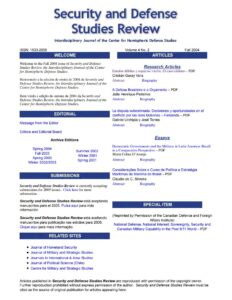The isolation of the Falklands-Malvinas from the American continent is a strange and awkward contradiction within the new paradigms of globalization. Moreover, the liberal civil rights enjoyed by the inhabitants of the Falklands-Malvinas Islands clashes with their legal framework of discrimination applied to outsiders, and both factors can only result in a resurgence of tension and an increase in the cost of the conflict. The goal of this presentation is to encourage a change in attitude by the parties involved in the dispute, through an analysis of the historical decision-making process and the opportunities associated with the controversy. However, a change in attitude alone is not enough for an effective solution to this territorial dispute. It requires an Argentina with reliable institutions in parallel with the United Kingdom’s political will. Finally, there are some valuable lessons we can learn from the narrative. Perhaps an early attempt to craft a solution to this dispute might be possible by taking into account the Henry Kissinger’s words of wisdom, when he stated that "a successful negotiation happens when both sides lose something."

